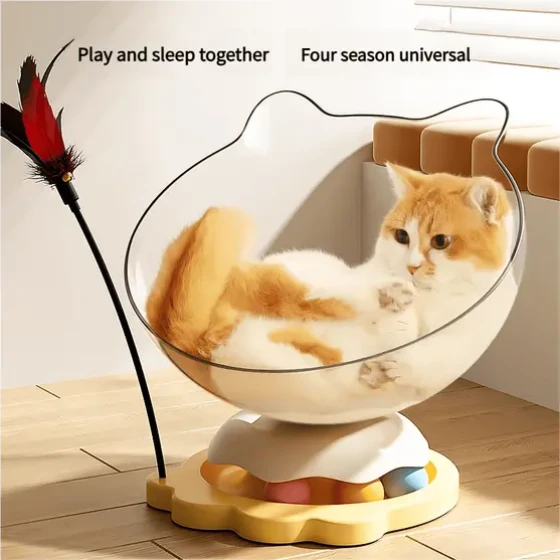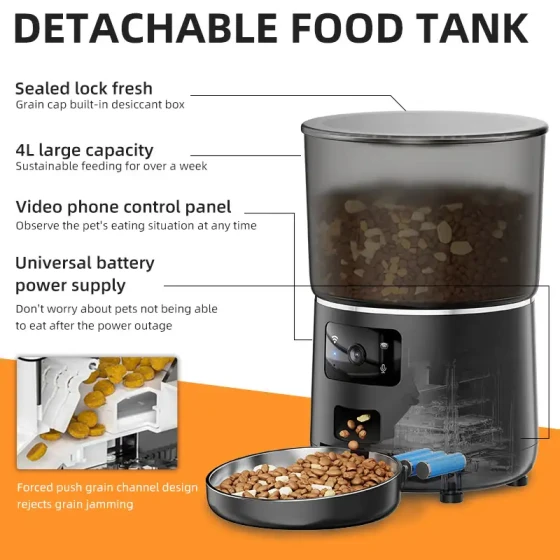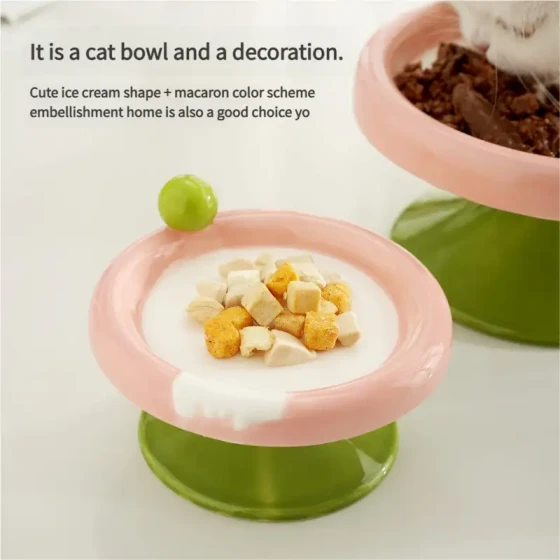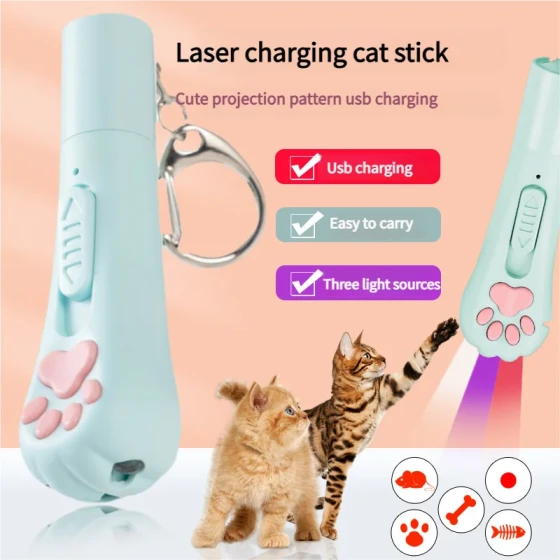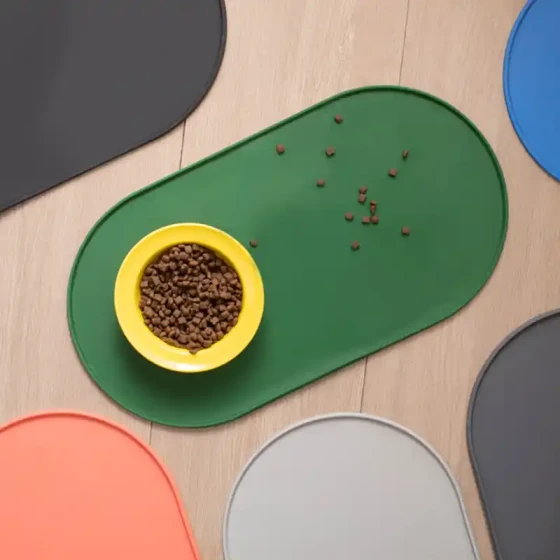Is It Normal for Cats to Occasionally Sneeze_Analysis of Reasons for Cats Sneezing
Occasional sneezing in cats may seem minor, but there is quite a bit of knowledge behind it. Simply put, just like humans sometimes sneeze, it is completely normal for cats to sneeze once in a while. However, if this "occasional" sneezing becomes frequent or is accompanied by other symptoms, it is a signal from the body that we need to be more alert.
Why is occasional sneezing considered normal? This largely has to do with minor irritants in the environment. Imagine your home may have open windows or you just finished cleaning, with tiny dust particles, fluff, or even pollen floating in the air. The cat's nasal cavity, like ours, is the first line of defense for the respiratory tract and is very sensitive to these foreign irritants. When these tiny particles enter the nasal cavity and stimulate the nasal mucosa, the body naturally activates a defense mechanism—sneezing—to try to expel these uninvited guests. This is a form of self-protection, similar to cleaning out the gates.
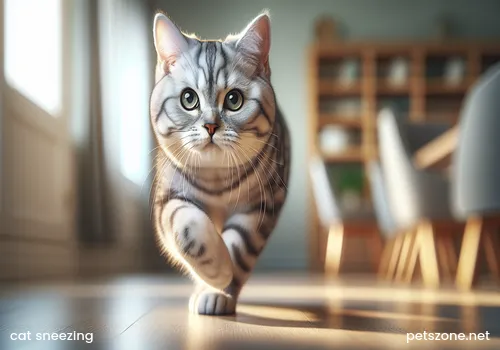
Therefore, if your feline companion only sneezes once or twice occasionally when waking up, playing, or after you do a big cleaning, and then returns to normal with good spirit and appetite, usually there is no need to worry excessively. This is mostly triggered by some environmental irritants, such as:
- Dust and fluff: These small items may hide in corners, carpets, or bedding in your home.
- Irritating odors: Cleaning agents, perfumes, smoke (though smoking is not recommended in cat households), or even the smell of certain cat litters can irritate a cat's respiratory tract.
- Dry air: Especially when the heater is on in winter, dry air can make the nasal mucosa more sensitive.
- Rapid temperature changes: Suddenly moving from a warm environment to a cooler one can also cause one or two sneezes.
However, if a cat's sneezing becomes frequent, sneezing several times a day or sneezing continuously without stopping, it can no longer be attributed to "normal" causes. At this point, we need to consider some potential health problems. This is similar to a human cold, where sneezing is just one symptom but there could be more complex underlying causes.
When sneezing is no longer a minor issue: potential health reasons
Frequent sneezing, especially if accompanied by other symptoms, often indicates that a cat's respiratory system may be infected or irritated. The most common causes are:
- Upper Respiratory Infections (URIs): This is like the cat having a "cold" or "flu." URIs are one of the most common reasons cats sneeze, usually caused by viruses (such as feline herpesvirus-1, feline calicivirus) or bacteria (such as chlamydia, mycoplasma).
- Common symptoms: Besides frequent sneezing, you might also see:
- Runny nose: Nasal discharge may be clear or turn yellow or green and purulent.
- Watery eyes/increased eye discharge: Eyes appear wet, sometimes with eye crust.
- Loss of appetite: Sick cats may not smell food due to nasal congestion or feel unwell and avoid eating.
- Lethargy: Less lively than usual, prefers sleeping.
- Fever: Measuring with a pet thermometer may show elevated temperature.
- Oral ulcers: Especially feline calicivirus infection, can cause painful ulcers on tongue, gums, or other mouth areas.
- URIs are contagious, especially in multi-cat households, where one cat's infection can spread to others.
- Common symptoms: Besides frequent sneezing, you might also see:
- Allergies: Like humans, cats can also be allergic to certain environmental substances.
- Allergens: Pollen, dust mites, mold spores, certain food ingredients, or even the perfumes or cleaning agents you use.
- Symptoms: Allergy-induced sneezing may be seasonal (if allergic to pollen) or occur when exposed to specific items or environments. In addition to sneezing, there may be skin itching, hair loss, but respiratory symptoms can also be present.
- Nasal foreign bodies: Curious cats may accidentally inhale small grass seeds, thread ends, or other tiny objects while playing or grooming.
- Symptoms: Sneezing triggered by this is usually sudden and intense. Cats may appear very irritable, paw at their nose, or shake their head. This differs from ordinary cold or allergy symptoms.
- Dental issues: This may sound unusual, but severe dental infections or root abscesses, especially involving upper jaw teeth whose roots are very close to the nasal cavity, can cause inflammation that spreads to the nasal cavity, leading to sneezing, sometimes with unilateral nasal discharge.
- Nasal cavity lesions: Though rare, nasal polyps (non-cancerous growths) or tumors can develop inside the nasal cavity, blocking airways and causing persistent sneezing, nasal congestion, and nasal discharge (sometimes bloody).
When should you see a vet?
Understanding these causes, the key is knowing when to take your cat to the veterinarian. Remember the principle: When sneezing is no longer an isolated, occasional event and begins to affect your cat’s overall condition, it’s time to seek professional help.
Here are some clear signs that require medical attention:
- Frequent sneezing lasting several days.
- Sneezing accompanied by nasal discharge (especially yellow or green purulent discharge).
- Sneezing accompanied by eye symptoms (tearing, eye crust).
- Cat appears lethargic, loses appetite, or completely refuses to eat.
- Cat has coughing or difficulty breathing.
- Blood-tinged nasal discharge or sneezing.
- Cat appears very uncomfortable or in pain, pawing at its nose.
- Symptoms do not improve after environmental improvements.
- Kittens, senior cats, or cats with underlying conditions having frequent sneezing, as their immunity is relatively weaker.
Veterinarians will conduct a thorough inquiry (asking about symptom onset, frequency, accompanying symptoms, living environment, etc.) and perform a comprehensive physical examination. They may recommend additional tests like blood work, nasal secretion analysis, X-rays, or even specialized nasal endoscopy to determine the cause and provide appropriate treatment plans. Treatments may include antiviral drugs, antibiotics, anti-inflammatory drugs, antihistamines, and more, depending on the diagnosis.
Daily care and prevention
As responsible pet owners, we can do more than just observe; we can take some measures to reduce the likelihood of our cats sneezing:
- Keep the environment clean: Regularly clean to reduce dust and fluff at home. Choose dust-free or low-dust cat litter.
- Maintain fresh air: Avoid using strong irritant cleaners, air fresheners, or smoking near the cat. Consider using air purifiers.
- Maintain humidity: During dry winter months, use a humidifier to help keep the cat’s nasal mucosa moist.
- Pay attention to diet and hydration: Provide high-quality cat food, ensure plenty of water to help maintain overall health and immunity.
- Regular check-ups and vaccinations: Follow vet advice for regular exams and timely vaccinations, especially against feline herpesvirus and calicivirus vaccines, effectively preventing upper respiratory infections.
- Reduce stress: Stress lowers immunity and makes cats more prone to illness. Try to provide a stable, safe, and comfortable living environment.
In summary, occasional sneezing in cats, like an occasional cough in humans, is mostly harmless. But raising pets is like raising children; we need to be sharp observers. Learning to distinguish between "normal minor fusses" and "signals that require vigilance" and seeking professional medical help timely is the key to ensuring your cat’s health and happiness. After all, they cannot speak, and sneezing, nasal discharge, and tears are their ways of telling us, "I’m feeling a little unwell."
